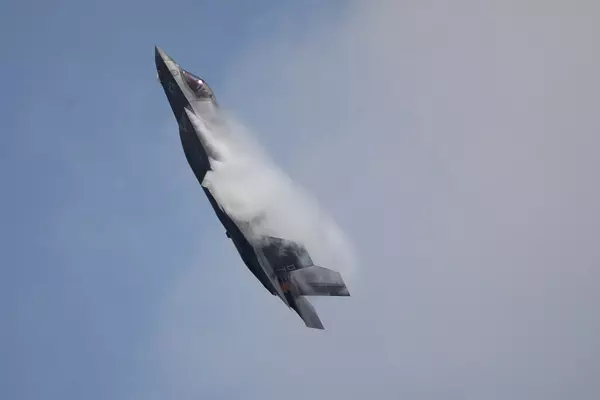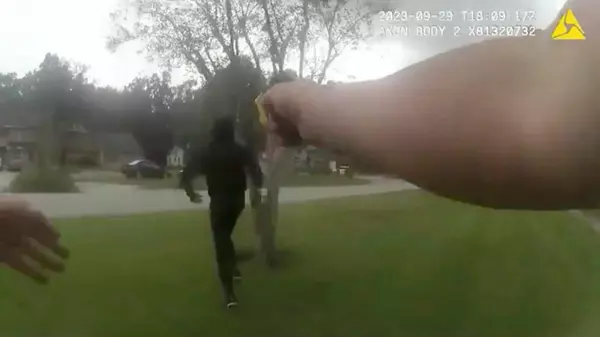
Closing summary
We’re pausing our live coverage of the war in Israel-Gaza war for the day. Here’s a round-up of the main developments:
The US military has finished installing a floating pier for the Gaza Strip, meaning officials are now poised to begin ferrying badly needed humanitarian aid into the enclave besieged over seven months of intense fighting in the Israel-Hamas war.
Five Israeli soldiers have been killed by friendly fire in Gaza’s north, where intense fighting has resumed more than seven months into the war. The troops were killed on Wednesday at 7pm local in the area of Jabalia refugee camp, the IDF said in a statement. Seven other troops were wounded in the incident.
The United Nations’ top court is opening two days of hearings into a request from South Africa to press Israel to halt its military operation in the southern Gaza city of Rafah.
Lebanon’s Iran-backed Hezbollah group says it has launched “more than 60” rockets at Israeli military positions in retaliation for overnight air strikes on the country’s east.
The Reuters news agency says it has been told by two Egyptian sources that Egypt has rejected an Israeli proposal for the two countries to coordinate to re-open the Rafah crossing between Egypt’s Sinai Peninsula and the Gaza Strip.
At least 35,272 Palestinians have been killed and 79,205 have been wounded in Israel’s military offensive on Gaza since 7 October, the Hamas-run Gaza health ministry has said.
At least 35,272 Palestinians have been killed and 79,205 have been wounded in Israel’s military offensive on Gaza since 7 October, the Hamas-run Gaza health ministry said in a statement on Thursday.
The Reuters news agency has been told by two Egyptian sources that Egypt has rejected an Israeli proposal for the two countries to coordinate to re-open the Rafah crossing between Egypt’s Sinai Peninsula and the Gaza Strip.
Officials from Israeli security service Shin Bet presented the plan on a visit to Cairo on Wednesday, amid rising tension between the two countries following Israel’s military advance last week into Rafah, where hundreds of thousands of Palestinians displaced by war have been sheltering.
The Rafah crossing has been a main conduit for humanitarian aid entering Gaza, and an exit point for medical evacuees from the territory, where a humanitarian crisis has deepened and some people are at risk of famine.
Israel took operational control of the crossing and has said it will not compromise on preventing Hamas having any future role there.
The Israeli proposal included a mechanism for how to manage the crossing after an Israeli withdrawal, the security sources said. Egypt insists the crossing should be managed only by Palestinian authorities, Reuters added.
An Israeli official who requested anonymity said the delegation travelled to Egypt “mainly to discuss matters around Rafah, given recent developments”, but declined to elaborate.
Egypt’s foreign press office did not immediately respond to a request for comment.
Israel’s economy has recovered sharply in the first quarter of 2024 after a steep contraction in late 2023 that followed the start of the war.
The Central Bureau of Statistics has said in an initial estimate that gross domestic product (GDP) grew 14.1% in the January to March period.
Growth was led by a rebound in consumer spending and renewed investment, particularly in residential building.
The fourth-quarter of 2023 saw GDP contract 21.7%.
Updated
Here are some more images of the floating pier – which was installed today – while it was under construction. It is reported to have cost the US military $230m (£182m).
Last night, a US interior department staffer became the first Jewish political appointee to publicly resign in protest of US support for Israel’s war in Gaza.
Lily Greenberg Call, a special assistant to the chief of staff in the interior department, accused Joe Biden of using Jewish people to justify US policy in the conflict.
Call had worked for the presidential campaigns of both Biden and Kamala Harris, and was a longtime activist and advocate for Israel in Washington and elsewhere before joining the government.
She is at least the fifth mid- or senior-level administration staffer to make public their resignation in protest of the Biden administration’s military and diplomatic support of the now seven-month Israeli war against Hamas.
She is the second political appointee to do so, after an education department official of Palestinian heritage resigned in January.
Her resignation letter described her excitement at joining an administration that she believed shared much of her vision for the country. “However, I can no longer in good conscience continue to represent this administration,” she wrote.
Lebanon’s Iran-backed Hezbollah group says it has launched “more than 60” rockets at Israeli military positions in retaliation for overnight air strikes on the country’s east, AFP reports
Israel and Hamas ally Hezbollah have exchanged near-daily fire following the Palestinian group’s October 7 attack on southern Israel that sparked the war in Gaza, now in its eighth month.
Hezbollah fighters “launched a missile attack with more than 60 Katyusha rockets” on several Israeli military positions in the Israeli-annexed Golan Heights, the group said in a statement.
The strikes were “in response to the Israeli enemy’s attacks last night on the Bekaa region” in eastern Lebanon’s Baalbek area, the group added.
Earlier on Thursday, Lebanese state-run media reported an overnight Israeli air raid on the Baalbek area, where Hezbollah holds sway, hours after the group launched an attack deep into Israeli territory.
On Wednesday, Unwra, the UN’s agency for Palestinian refugees, said almost 600,000 people had fled Rafah following evacuation orders last week amid mounting international pressure on Israel to halt its offensive on the densely populated city.
The Israeli military distributed leaflets to more than a million Palestinians who had initially sought refuge in Rafah from fighting in other parts of the Gaza Strip. Satellite images obtained via Maxar show sprawling tent cities emerging west of Khan Younis city and near the al-Mawasi “humanitarian zone”.
In al-Mawasi, a narrow part of Gaza’s coastline designated as a “safe zone” by Israel’s army, hundreds of tents popped up between 4th May and 15th May.
Northwest of Rafah displaced Palestinians have also had to set up makeshift camps.
Khan Younis, a city already devastated by months of fighting, is also once again hosting large displaced population of Palestinians seeking safety from Israel’s expanding offensive. Here are two satellite images superimposed on one another of Aqsa Khan University, around 5 km from Khan Younis’s center.
Updated
Palestinian lorry drivers recount settlers’ attack on Gaza aid convoy
Palestinian lorry drivers delivering aid to Gaza have described “barbaric” scenes after their vehicles were blocked and vandalised by Israeli settlers, preventing humanitarian supplies reaching the territory where much of the population face imminent starvation.
Drivers and contractors who were targeted on Monday at the Tarqumiya checkpoint in the occupied West Bank also said Israeli soldiers escorting the convoy did nothing to stop the attack.
The incident sparked international condemnation after videos emerged on social media that appeared to show Israeli settlers throwing boxes of much-needed supplies on the ground and at least one vehicle being set ablaze.
Yazid al-Zoubi, 26, said between 50 and 60 lorries had set out in the convoy.
“We were carrying oil, sugar and other things and driving from the Tarqumiya crossing,” he said. “We left in a convoy with an army vehicle in front of us and an army vehicle behind us, and we took a special army road that civilians could not cross. Suddenly, after 20 minutes on the road, near the crossing, we were surprised by at least 400 settlers. They attacked us. The rest of the drivers and I escaped from the vehicles after the settlers starting throwing stones at us.’’
Today, the United Nations’ top court is opening two days of hearings into a request from South Africa to press Israel to halt its military operation in the southern Gaza city of Rafah.
More than half of Gaza’s population has sought shelter in Rafah.
This is the fourth time South Africa has asked the International Court of Justice for emergency measures since it launched proceedings alleging that Israel’s military action in its war with Hamas in Gaza amounts to genocide.
It says the previous preliminary orders by The Hague-based court were not sufficient to address a “brutal military attack on the sole remaining refuge for the people of Gaza”.
We briefly reported earlier on the split in Israel’s war cabinet. Here is Peter Beaumont’s report on the situation:
A long-festering split at the heart of Israel’s war cabinet has burst into the open with the defence minister, Yoav Gallant, challenging the prime minister, Benjamin Netanyahu, to come up with plans for the “day after” the war in Gaza, and saying he would not permit any solution where Israeli military or civil governance were in the territory.
Gallant’s comments, immediately backed by his fellow minister Benny Gantz, plunged Israel’s leadership into a highly public row, in the midst of the Gaza conflict, raising immediate speculation over his future in the Israeli government and of Netanyahu’s fractious coalition.
In uncompromising remarks, Gallant – whose firing last year by Netanyahu triggered mass protests, a political crisis and an eventual reversal by the PM – publicly demanded that Netanyahu describe plans for a “day-after plan” for Gaza.
Gallant’s comments provoked an immediate political row, with Netanyahu pushing back rapidly with a videotaped statement and a call from the far-right national security minister, Itamar Ben-Gvir, for Gallant to be replaced.
Gallant was backed, however, by his fellow senior minister Benny Gantz, a former chief of staff of the Israel Defense Forces, who said Gallant had spoken the “truth”.
Five killed and seven wounded in Israeli friendly fire incident
Five soldiers have been killed by friendly fire in Gaza’s north, where intense fighting has resumed more than seven months into the war.
The troops were killed on Wednesday at 7pm local in the area of Jabalia refugee camp, the IDF said in a statement. Seven other troops were wounded in the incident.
The statement read:
Five soldiers of the 202nd Paratrooper Battalion were killed last night in a mass casualty incident as a result of fire by our forces.
It continued:
The shooting consisted of two tank shells. From the initial investigation... it appears that the tank fighters, from the ultra-Orthodox paratrooper company Hetz, identified a gun barrel coming out of one of the windows in the building, and directed each other to shoot at the building.
Here are some of the latest images from photographers on the ground in Gaza:
Fraught with logistical, weather and security challenges, delivering aid via the maritime route and floating pier is designed to bolster the amount of aid getting into the Gaza Strip, AP reports
Crucially, however, it is not considered a substitute for far cheaper land-based deliveries that aid agencies say are much more sustainable.
Boatloads of aid will be deposited at a port facility built by the Israelis just southwest of Gaza City and then distributed by aid groups.
Israeli forces will be in charge of security on the shore, but there are also two US Navy warships near the area in the eastern Mediterranean Sea, the USS Arleigh Burke and the USS Paul Ignatius. Both ships are destroyers equipped with a wide range of weapons and capabilities to protect American troops off shore and US allies on the beach.
The first cargo ship loaded with 475 pallets of food left Cyprus last week to rendezvous with a US military ship Off the coast of Gaza. The Pentagon said moving the aid between ships was an effort to be ready so it could flow quickly once the pier and the causeway were installed.
The installation of the pier several miles off the coast and of the causeway, which is now anchored to the beach, was delayed for nearly two weeks because of bad weather and high seas. The sea conditions made it too dangerous for US and Israeli troops to secure the causeway to the shore and do other final assembly work, US officials said.
Updated
US installs pier to help flow of aid to Gaza
The US military has finished installing a floating pier for the Gaza Strip.
It means officials are now poised to begin ferrying badly needed humanitarian aid into the enclave besieged over seven months of intense fighting in the Israel-Hamas war.
The construction was finished overnight, AP reported, and sets up a complicated delivery process more than two months after Joe Biden ordered it to help Palestinians facing starvation.
Recently, food and other supplies have failed to make it in to Gaza as Israel recently seized the key Rafah border crossing in its push on that southern city on the Egyptian border.
US troops facilitating aid delivery through the pier will not set foot in Gaza, American officials insist, though they acknowledge the danger of operating near the war zone.
Updated
Opening summary
We are restarting the Guardian’s live coverage of the Israel-Gaza war.
Hamas chief Ismail Haniyeh has rejected any postwar settlement in Gaza that excludes the group, saying “the movement [Hamas] will decide, along with all national factions, the administration of the Gaza Strip after the war.”
He also blamed Israel for a deadlock in Gaza ceasefire negotiations and said that any agreement must provide a framework for a permanent end to Israel’s offensive in the enclave.
His comments come as a split in Israel’s war cabinet was made public, with the defence minister, Yoav Gallant, challenging prime minister Benjamin Netanyahu to come up with plans for the “day after” the war in Gaza, saying he would not permit any solution where Israeli military or civil governance were in the territory.
Here’s a summary of the day’s other main events.
Benjamin Netanyahu said Israel must do “what is required” in Rafah despite disagreements with its longtime ally the US. The Israeli prime minister, in an interview with CNBC, acknowledged a “disagreement” with Washington over his country’s military offensive in the southernmost Gaza city, but he stood firm that the operation would be necessary.
The Israeli leader said that it is pointless to “talk about the day after while Hamas is still intact.” “There is only one substitute for victory – defeat. My government will not agree to this,” Netanyahu said on Wednesday, according to Reuters. Netanyahu also repeated his claim that there is not a humanitarian crisis in southern Gaza.
The US secretary of state, Antony Blinken, said Israel must have a clear and concrete plan for the future of Gaza. Blinken, in a press conference in Kyiv on Wednesday, said that the US “do not support and will not support an Israeli occupation”, adding that “we can’t have a vacuum in Gaza that’s likely to be filled by chaos.”
Turkey’s foreign minister, Hakan Fidan, told his US counterpart, Antony Blinken, that Israel’s attack on the Gazan city of Rafah is unacceptable, according to a Turkish diplomatic source. In a call on Wednesday, Fidan also told Blinken that it was important to achieve a ceasefire in Gaza as soon as possible.
The UN has run out of tents and food to distribute to almost 2 million people in Gaza. UN officials told the Guardian that their warehouses were now completely empty south of the river dividing the northern third of the Gaza from the south, with no likelihood of resupply as long as the main entry points into the territory remain closed after Israeli offensives launched in recent days.
The International Rescue Committee (IRC) has said it faces “significant disruptions” to its humanitarian operations due to Israel’s recent ground operations in Rafah. In a statement, the organisation said “the closure of the Rafah crossing and a blockade on entry of humanitarian workers and aid, including fuel, [is] critically hindering our ability to deliver essential services and aid to those in desperate need”.
Updated







